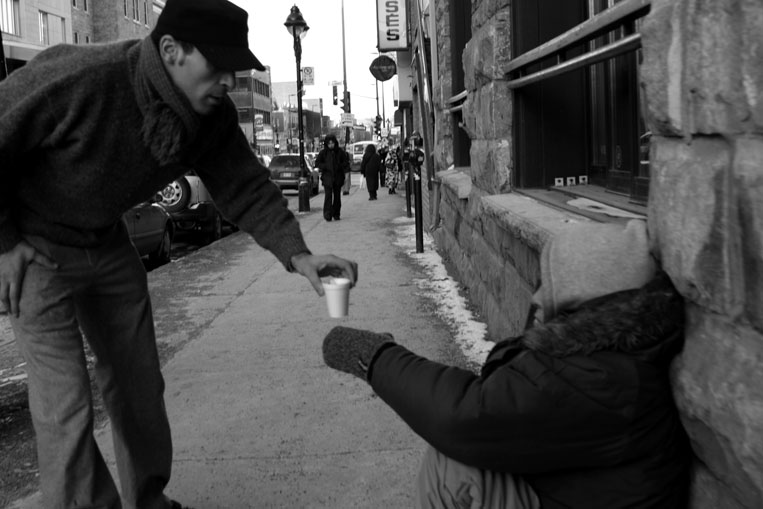

A new study published in the journal Motivation and Emotion by UBC Clinical Psychology professor Dr. Lynn Alden and SFU SSHRC post-doctoral fellow Jennifer Trew suggests that performing acts of kindness might help lessen social anxiety. For this study, Alden and Trew recruited 115 undergraduate students who reported experiencing high levels of social anxiety, and these participants were randomly assigned to three groups for a four-week intervention. One group performed acts of kindness, another group was simply exposed to social interactions, and the last group was given no instructions except to record what happened each day. The greatest overall decrease in desire to avoid social interactions was seen among the individuals who were asked to perform acts of kindness.
We had the opportunity to ask Dr. Alden a few questions about the exciting implications of this research.
How might performing acts of kindness reduce individuals’ social anxiety levels?
Acts of kindness may help to counter the socially anxious person’s fear of negative evaluation by promoting more positive perceptions and expectations of how other people will respond.
What sorts of acts of kindness might people perform in order to reduce their social anxiety?
We found that any kind act appeared to have the same benefit, even small gestures like opening a door for someone or saying “thanks” to the bus driver. Kindness didn’t need to involve money or time-consuming efforts, although some of our participants did do such things. Kindness didn’t even need to be “face to face”. For example, kind acts could include donating to a charity or putting a quarter in someone’s parking meter when you notice that it is blinking. Studies by other researchers suggest that it is important that the kind act is done for its own sake and that it not feel coerced or be done for personal benefit. Aside from that, anything goes.
How might this build off or relate to your previous research on the topic of social anxiety?
My research is focused on understanding and overcoming the problematic interpersonal patterns that can accompany anxiety and the anxiety disorders. For people with severe social anxiety (i.e. social anxiety disorder), negative self-beliefs lead the person to engage in safety-seeking (self-protective) behaviors that generally involve trying to conceal or disguise the self. This behavior is self-defeating in that studies from relational science strongly demonstrate that openness in the form of self-disclosure and emotional expression fuel the development of close relationships. The paradox is that by trying to
protect themselves from negative evaluation, socially anxious people actually choke off the development of the emotional intimacy that might overcome their negative self-views.
Research conducted by my lab addresses such topics as the effect of social rejection on the development of anxiety (Klint Fung) and on empathy (Karen Auyeung). We’re also studying erosion of positive feedback in anxious individuals (Bri Glazier). All this work, like Jenn’s kindness research, breaks new ground and has yielded interesting results. I’m also excited by a recent study (with Leili Plasencia and Charlie Taylor) that found that reducing safety behaviors leads to an increased sense of authenticity (i.e. that one is acting in accordance with one’s true self). Enhanced authenticity, in turn, mediated greater enjoyment of social interactions and more positive perceptions of partner responses.
You mentioned that interventions based on this research could be very effective. Can you describe how such an intervention might be implemented?
A core treatment goal for social anxiety disorder is to increase involvement in social situations, which socially anxious individuals are motivated to avoid. Social exposure exercises might be enhanced by encouraging anxious individuals to focus on kind actions. So, opening the door for a neighbor who is pushing a stroller, thanking grocery clerks for helpfulness, or offering to get a coffee for a co-worker may be a good way to begin social exposure.
-Katie Coopersmith


